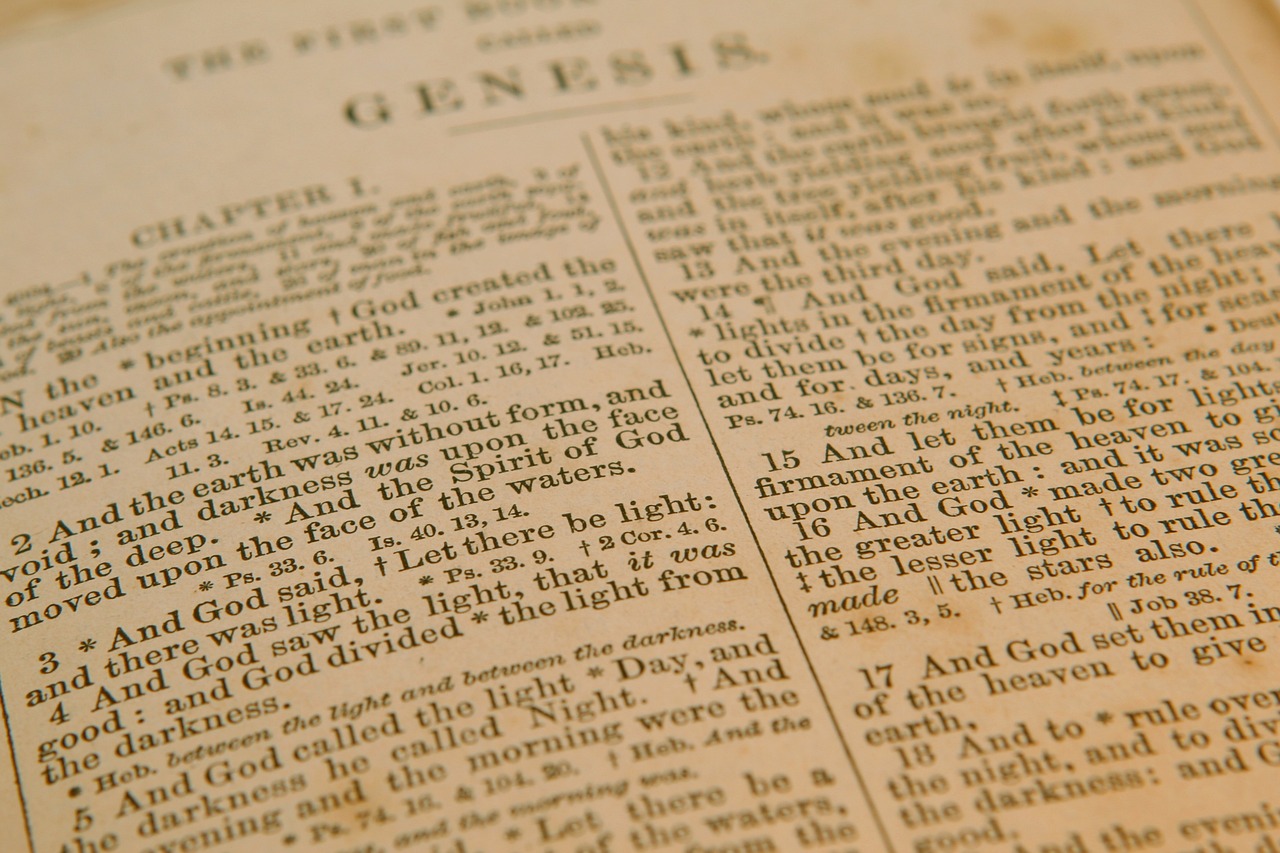Orthodox Christianity originated in the eastern part of the Roman Empire, specifically in the region known as Byzantium, which is present-day Turkey. It emerged as a distinct branch of Christianity in the 4th century AD, following the Council of Nicaea in 325 AD. The term “Orthodox” refers to the adherence to the correct or orthodox teachings of Christianity as defined by the early Church Fathers.
Table of Contents
The Origins of Orthodox Christianity: A Historical Overview
Orthodox Christianity, with its rich history and deep-rooted traditions, has captivated the hearts and minds of millions of believers around the world. But have you ever wondered where this ancient faith originated? In this article, we will take a historical journey to explore the origins of Orthodox Christianity.
To understand the beginnings of Orthodox Christianity, we must first delve into the early days of Christianity itself. The story begins in the first century AD, when Jesus Christ, the central figure of the Christian faith, walked the earth. His teachings and miracles attracted a devoted following, and after his crucifixion and resurrection, his disciples spread his message far and wide.
One of these disciples was the apostle Peter, who is considered by Orthodox Christians to be the first bishop of Rome. Peter’s leadership and martyrdom laid the foundation for the establishment of the Church, and his successors, known as the popes, became the spiritual leaders of the Western Christian tradition.
However, the origins of Orthodox Christianity lie in the East, specifically in the ancient city of Byzantium, which later became known as Constantinople. In the fourth century AD, the Roman Emperor Constantine the Great embraced Christianity and moved the capital of the Roman Empire to Byzantium. This monumental shift had a profound impact on the development of the Christian faith.
Under Constantine’s patronage, Christianity flourished in Byzantium, and the city became a center of Christian thought and theology. The early Christian theologians, known as the Fathers of the Church, played a crucial role in shaping the doctrines and beliefs of Orthodox Christianity. Figures like St. Athanasius, St. Basil the Great, and St. John Chrysostom left a lasting legacy that continues to influence Orthodox theology to this day.
In 1054 AD, a significant event known as the Great Schism occurred, which marked the formal split between the Eastern Orthodox Church and the Roman Catholic Church. The primary cause of this division was a disagreement over the authority of the pope and the use of the filioque clause in the Nicene Creed. This schism created two distinct branches of Christianity, each with its own unique traditions and practices.
Despite the schism, Orthodox Christianity continued to thrive in the Byzantine Empire. The Byzantines built magnificent churches and monasteries, adorned with breathtaking mosaics and icons, which became the spiritual and cultural centers of the Orthodox world. The Byzantine Empire’s influence extended far beyond its borders, spreading Orthodox Christianity to neighboring regions such as Russia, Bulgaria, and Serbia.
Over the centuries, Orthodox Christianity faced numerous challenges, including invasions, political upheavals, and religious conflicts. However, the faith persevered, adapting to changing circumstances while remaining true to its ancient traditions. Today, Orthodox Christianity is practiced by millions of believers worldwide, from Greece and Russia to Ethiopia and America.
In conclusion, the origins of Orthodox Christianity can be traced back to the early days of Christianity itself, with its roots firmly planted in the ancient city of Byzantium. The Byzantine Empire’s influence and the contributions of the early Church Fathers shaped the doctrines and beliefs of Orthodox Christianity. Despite the Great Schism and the challenges it faced, Orthodox Christianity has endured and continues to be a vibrant and influential faith tradition. So, the next time you attend an Orthodox service or admire a beautiful icon, remember the rich history and origins of this ancient faith.
Exploring the Early Church Fathers and the Birth of Orthodox Christianity

Orthodox Christianity, with its rich history and deep-rooted traditions, has captivated the hearts and minds of millions of believers around the world. But have you ever wondered where this ancient faith originated? Join me on a journey as we explore the early Church Fathers and the birth of Orthodox Christianity.
To understand the origins of Orthodox Christianity, we must first delve into the early days of the Church. In the first few centuries after the death and resurrection of Jesus Christ, the Christian faith spread rapidly throughout the Roman Empire. However, as the Church grew, so did the need for a unified doctrine and structure.
It was during this time that the early Church Fathers emerged as influential figures in shaping the future of Christianity. These revered men, such as Ignatius of Antioch, Clement of Rome, and Polycarp of Smyrna, played a crucial role in defending and defining the core beliefs of the faith. Their writings and teachings laid the foundation for what would later become Orthodox Christianity.
One of the key events in the birth of Orthodox Christianity was the Council of Nicaea in 325 AD. This historic gathering brought together bishops from across the empire to address the growing controversy surrounding the nature of Christ. The council ultimately affirmed the divinity of Jesus and established the Nicene Creed, a statement of faith that remains central to Orthodox Christianity to this day.
As the centuries passed, the Church faced numerous challenges and divisions. The Great Schism of 1054 marked a significant split between the Eastern Orthodox Church and the Roman Catholic Church. This division was primarily due to differences in theology, liturgical practices, and the authority of the Pope. While the Roman Catholic Church became the dominant force in the West, the Eastern Orthodox Church continued to flourish in the Byzantine Empire and beyond.
The Byzantine Empire, with its capital in Constantinople (modern-day Istanbul), became the center of Orthodox Christianity. The Byzantines developed a distinct liturgical tradition, known for its elaborate rituals and beautiful iconography. The Byzantine Emperor, often seen as the protector of the faith, played a crucial role in the governance of the Church.
Throughout its history, Orthodox Christianity has faced numerous challenges, including persecution, political upheaval, and cultural shifts. However, the faith has remained resilient, preserving its ancient traditions and teachings. Today, Orthodox Christianity is practiced by millions of believers worldwide, with strongholds in Eastern Europe, Russia, and the Middle East.
In conclusion, the origins of Orthodox Christianity can be traced back to the early Church Fathers and the Council of Nicaea. These influential figures and historic events shaped the core beliefs and practices of the faith. Despite divisions and challenges throughout history, Orthodox Christianity has endured, captivating the hearts of believers with its rich traditions and unwavering devotion. So, the next time you find yourself in awe of the beauty and depth of Orthodox Christianity, remember its humble beginnings and the journey it has taken to become the faith we know today.
The Influence of Byzantine Empire on the Development of Orthodox Christianity
Orthodox Christianity, one of the oldest branches of Christianity, has a rich and fascinating history. To truly understand its origins, we must delve into the influence of the Byzantine Empire on the development of this faith.
The Byzantine Empire, also known as the Eastern Roman Empire, was a powerful and influential state that emerged from the Roman Empire in the 4th century. It was centered around the city of Constantinople, which is present-day Istanbul in Turkey. The Byzantine Empire played a crucial role in the spread and preservation of Orthodox Christianity.
One of the most significant contributions of the Byzantine Empire to Orthodox Christianity was the establishment of Constantinople as the new center of the Christian world. This move shifted the focus away from Rome, which had been the center of the Roman Empire and the Catholic Church. The Byzantine Empire’s decision to make Constantinople the new capital allowed for the development of a distinct Eastern Christian tradition.
The Byzantine Empire also played a pivotal role in the development of the liturgical practices and theological doctrines of Orthodox Christianity. The Byzantines placed great emphasis on the beauty and grandeur of religious ceremonies, which influenced the way Orthodox Christians worship to this day. The use of icons, elaborate church decorations, and intricate liturgical music all originated from the Byzantine Empire.
Furthermore, the Byzantine Empire was instrumental in the preservation and dissemination of ancient Greek philosophy and literature. The Byzantines translated and preserved many ancient Greek texts, including the works of Plato and Aristotle. These philosophical ideas had a profound impact on the development of Orthodox Christian theology, as they provided a framework for understanding complex theological concepts.
The Byzantine Empire’s influence on Orthodox Christianity extended beyond its borders. Through its extensive trade networks and diplomatic relations, the Byzantines spread their faith to neighboring regions, such as Russia, Bulgaria, and Serbia. These regions adopted Orthodox Christianity as their official religion, and it became an integral part of their cultural and national identities.
Despite its significant influence, the Byzantine Empire faced numerous challenges that threatened the development of Orthodox Christianity. The rise of Islam in the 7th century posed a major threat to the Byzantines, as Muslim armies conquered vast territories, including parts of the Byzantine Empire. This led to the loss of many Christian communities and forced the Byzantines to defend their faith and culture fiercely.
The Byzantine Empire eventually fell to the Ottoman Turks in 1453, marking the end of an era. However, the legacy of the Byzantines lived on in the Orthodox Christian world. The Byzantine Empire’s influence on the development of Orthodox Christianity cannot be overstated. Its contributions to liturgical practices, theological doctrines, and the spread of the faith shaped the course of Orthodox Christianity for centuries to come.
In conclusion, the Byzantine Empire played a crucial role in the development of Orthodox Christianity. Its establishment of Constantinople as the new center of the Christian world, its emphasis on grand religious ceremonies, and its preservation of ancient Greek philosophy all contributed to the unique identity of Orthodox Christianity. Despite the challenges it faced, the Byzantine Empire’s influence on the faith remains evident to this day.
Tracing the Spread of Orthodox Christianity: From Byzantium to the World
Orthodox Christianity, with its rich history and deep-rooted traditions, has captivated the hearts and minds of millions of believers around the world. But have you ever wondered where this ancient faith originated? Join us on a journey as we trace the spread of Orthodox Christianity from its birthplace in Byzantium to the far corners of the world.
To understand the origins of Orthodox Christianity, we must first delve into the history of Byzantium, the city that served as its cradle. Located in present-day Istanbul, Turkey, Byzantium was a thriving metropolis in the early centuries of the Christian era. It was here that the teachings of Jesus Christ took root and flourished, giving birth to what would later become known as Orthodox Christianity.
As the Roman Empire crumbled under the weight of internal strife and external invasions, Byzantium emerged as a beacon of stability and cultural refinement. The Byzantine Empire, as it came to be known, embraced Christianity as its official religion, and the city of Constantinople became the epicenter of Orthodox Christianity.
From Constantinople, the faith spread like wildfire, reaching the far corners of the empire and beyond. Missionaries and theologians carried the message of Orthodox Christianity to neighboring lands, converting countless souls along the way. The Byzantine Empire’s strategic location at the crossroads of Europe and Asia facilitated the dissemination of the faith, as traders, diplomats, and travelers carried it to distant lands.
One of the most significant milestones in the spread of Orthodox Christianity was the conversion of the Slavic peoples. In the 9th century, two brothers, Cyril and Methodius, devised the Cyrillic alphabet and translated the Bible into the Slavic languages. This breakthrough allowed the Slavs to embrace Christianity in their own tongues, fostering a deep connection between the faith and the people.
As the Byzantine Empire expanded, so did the influence of Orthodox Christianity. The empire’s reach extended into the Balkans, where the faith took root among the Serbs, Bulgarians, and Romanians. These regions became bastions of Orthodox Christianity, preserving its teachings and traditions throughout the centuries.
In the east, Orthodox Christianity found fertile ground in Russia. In the 10th century, Prince Vladimir of Kiev embraced the faith and made it the official religion of his realm. This pivotal moment in Russian history laid the foundation for the development of a unique branch of Orthodox Christianity known as the Russian Orthodox Church.
Over time, Orthodox Christianity continued to spread, adapting to the cultural and linguistic nuances of the lands it encountered. From Greece to Ethiopia, from Egypt to Georgia, Orthodox Christianity found a home in diverse cultures and societies, enriching them with its timeless teachings and profound spirituality.
Today, Orthodox Christianity boasts a global following, with millions of believers spanning continents and cultures. Its rich tapestry of liturgy, iconography, and theology continues to inspire and uplift, offering solace and guidance to those who seek a deeper connection with the divine.
So, the next time you find yourself marveling at the beauty and depth of Orthodox Christianity, remember its humble origins in Byzantium. From there, it spread like a gentle breeze, touching the lives of countless individuals and shaping the course of history. Let us cherish this ancient faith and honor the journey it has undertaken, from Byzantium to the world.
Conclusion
Orthodox Christianity originated in the Eastern Roman Empire, specifically in the city of Byzantium (later known as Constantinople).



